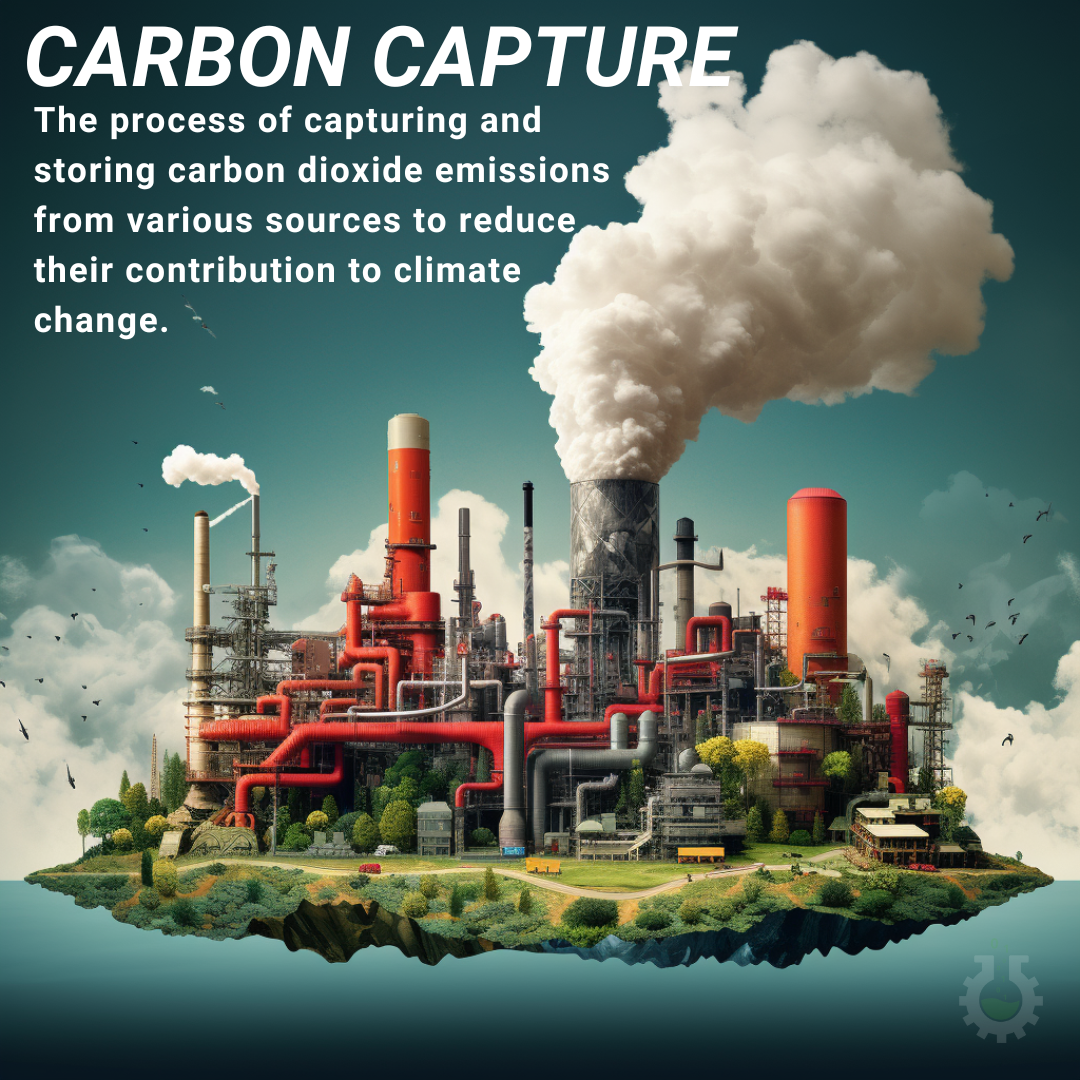September 15, 2023
Climate Change Poster Collection of the Day – Carbon Capture and Storage (CCS)
Book a Demo
Today’s Climate Change Poster Collection highlights the role of Carbon Capture and Storage (CCS) in mitigating the impact of climate change is essential. This technology is designed to capture and store up to 90% of the carbon dioxide emissions generated by fossil fuel usage in electricity generation and industrial processes. Its potential for significantly reducing greenhouse gas emissions is promising.
CCS technology leverages two primary methods for carbon capture: post-combustion and pre-combustion. Once the carbon dioxide (CO2) has been captured, it is transported and stored in deep geological formations or deep oceanic basins. These methods effectively prevent the CO2 from being released into the atmosphere, thus mitigating the contribution to global warming.
Nevertheless, despite the potential benefits, CCS faces significant challenges. These include high implementation and maintenance costs, which could lead to increased energy costs for consumers. There are also potential leakage risks from storage sites which could negate the benefits if not properly managed.
In addition to CCS, there is Carbon Capture, Utilization and Storage (CCUS). This technology is considered crucial for the energy transition, especially in industries that are difficult to decarbonize. CCUS involves not only capturing and storing CO2 but also repurposing it for other uses.
The International Energy Agency (IEA) plays a key role in promoting CCUS on a global scale. The agency provides policy advice, technical analysis, and data collection to assist countries and companies in implementing this technology. Despite the significant benefits of CCUS and its vital role in achieving climate goals, its deployment is lagging due to insufficient government support and industry investment.
CCS technology, though still in its early stages and not widely used commercially, is seen as a potential solution to climate change. It has the capacity to store billions of tons of CO2 for thousands of years. The UK alone has enough storage capacity for CCS to last at least 100 years.
However, like CCS, it is not without its challenges. These include high costs, public acceptance, and potential leakage risks. These challenges highlight the need for further research and development. It is clear that for CCS and CCUS technologies to reach their potential, consistent support from governments and substantial industry investment are needed. Only then can these technologies effectively contribute to the global fight against climate change.
Discover an inspiring collection of climate change posters.



